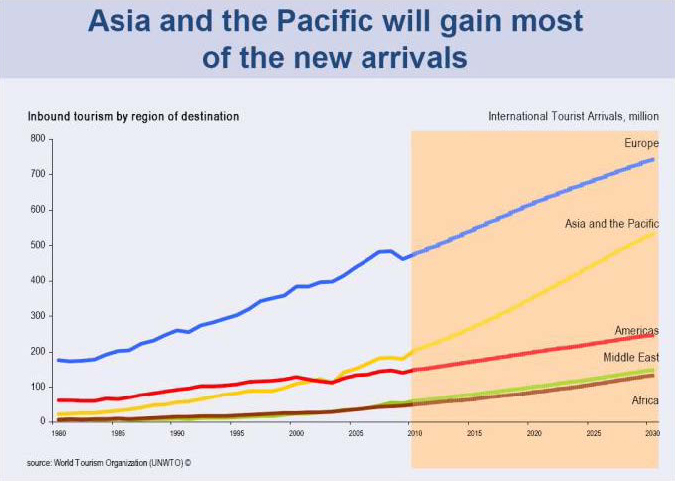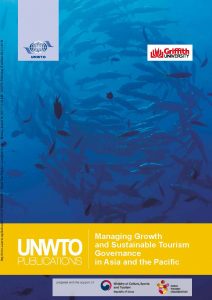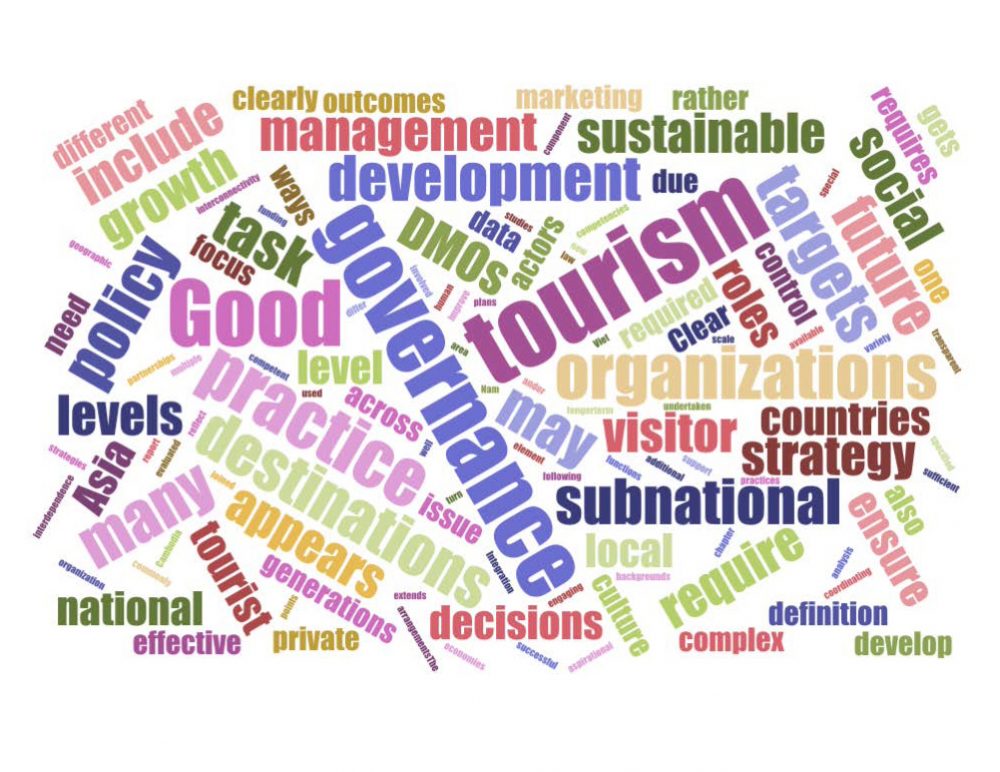Special Report
The United Nations World Tourism Organization and Griffith University released a report at the UNWTO General Assembly in Chengdu on Friday 15 September 2017 entitled “Managing Growth and Sustainable Tourism Governance in Asia and the Pacific”.
This report estimates that by 2030 there will be 535 million international arrivals to Asia and the Pacific, a 90 percent increase on 2015. This rapid growth in tourism, coupled with the region’s large population, calls for effective management of tourism development in order to protect communities and tourism resources. 2017 has been declared by the United Nations as the “International Year of Sustainable Tourism for Development” and it is therefore opportune to consider how tourism may contribute to sustainable development of destinations in Asia and the Pacific.

Tourism in Asia and the Pacific is growing at a greater rate than any other in region in the world, and provides opportunities for reducing poverty, providing employment, preserving unique cultures and their heritage, and our natural environment. Tourism is uniquely able to achieve these outcomes, but requires the appropriate governance arrangements to be in place if it is to do so. This means tourism destinations need to develop effective governance arrangements: rules for how a destination is managed sustainably and stakeholders interact.
This special report examines how to manage the forecast rapid growth of tourism in Asia and the Pacific and hence achieve these outcomes by improving destination governance arrangements. The governance arrangements discussed here are those of government organizations but not exclusively. The report also discusses the governance arrangements of community, non-governmental, private sector, public-private partnerships, and traditional organizations, and their role in sustainable tourism governance. Importantly, the special report indicates that these various institutions must collaborate if sustainable outcomes are to be achieved, and that this collaboration requires governance arrangements that may not yet be fully developed. Sustainable tourism requires development of governance arrangements across existing organizational boundaries.
The report reviews current thinking on tourism governance and provides some eighteen case studies from Asia and the Pacific, highlighting aspects of managing tourism growth. The eighteen case studies have been selected from across Asia and the Pacific tourism destinations to provide examples of the broad range of issues being dealt with and how they are being addressed in real-world practice. The topics of these cases range from country level tourism master-planning in Papua New Guinea to traditional governance arrangements on Tanna Island, Vanuatu; and covers economic entrepreneurship in China, social entrepreneurship in Viet Nam, and environmental entrepreneurship in Philippines. These cases emphasize the importance of developing “soft” tourism infrastructure, meaning the networks of organizations and people that collaborate to manage a tourism destination. They highlight that in growing tourism destinations of Asia and the Pacific there is a need to improve the skills and knowledge of people and of development of governance capacity and effectiveness.

Download a copy of the report here.
For more information contact: Prof Susanne Becken < [email protected] > or Prof Noel Scott < [email protected] >
Griffith Institute for Tourism, Griffith University Brisbane, Australia
